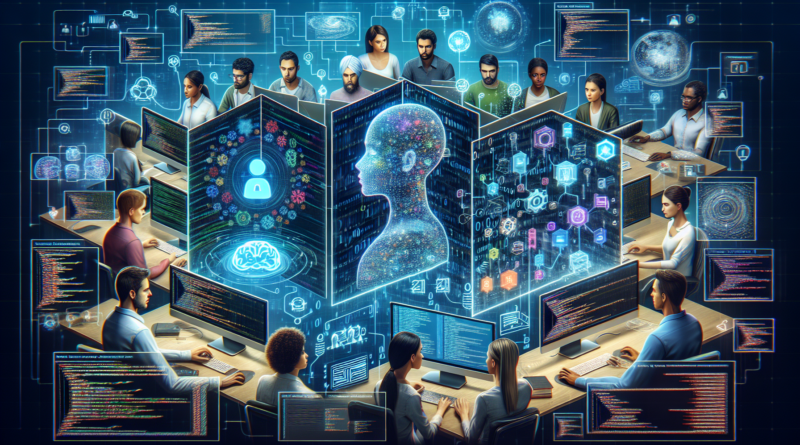Future Development Trends: Innovative Changes in Software Development Utilizing AI Technology
AI Trends
1. Code Generation2. Bug Detection3. Project Management
Automated Coding
AI is revolutionizing the way code is generated, making software development more efficient. Tools like GitHub Copilot use AI to assist developers by suggesting code snippets and completing lines of code. This not only speeds up the development process but also reduces the likelihood of errors. As AI continues to evolve, it is expected to handle more complex coding tasks, allowing developers to focus on higher-level design and architecture.
AI-driven bug detection tools are becoming increasingly sophisticated, identifying issues before they become critical.
By analyzing patterns in code, AI can predict potential bugs and vulnerabilities, offering solutions to fix them. This proactive approach to bug detection enhances software reliability and security. Developers can now rely on AI to catch errors that might have been overlooked during manual reviews, ensuring a smoother development cycle.
AI in Management
AI is transforming project management by automating routine tasks and providing data-driven insights. Tools equipped with AI can predict project timelines, allocate resources efficiently, and monitor progress in real-time. This allows project managers to make informed decisions quickly, improving overall productivity and project outcomes. As AI tools become more advanced, they will offer even more precise predictions and recommendations.
4. AI Ethics5. Continuous Integration
Ethical AI
As AI becomes more prevalent in software development, ethical considerations are paramount. Developers must ensure that AI systems are transparent, fair, and unbiased. This involves creating guidelines and frameworks to govern AI use, ensuring that it benefits society as a whole. By prioritizing ethics, developers can build trust in AI technologies and promote their responsible use.
AI is streamlining continuous integration and delivery (CI/CD) processes, making them more efficient and reliable.
By automating build and deployment processes, AI reduces the time and effort required to release new software versions. This allows for faster iteration and innovation, keeping software up-to-date with user needs and market trends. AI-driven CI/CD tools can also identify bottlenecks and optimize workflows, further enhancing development efficiency.
Conclusion
The integration of AI into software development is driving innovation and efficiency. From automated coding to enhanced security, AI is transforming every aspect of the development process. As these technologies continue to evolve, developers must stay informed and adapt to these changes, ensuring that they harness the full potential of AI while addressing ethical considerations. The future of software development is undoubtedly intertwined with AI, promising exciting advancements and opportunities.

